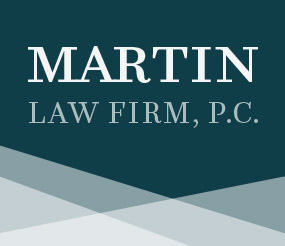In a prior blog article, we analyzed the Pennsylvania Superior Court case of Shafer Electric & Construction v. Raymond Mantia, et al. In this case, the Pennsylvania Superior Court overturned a lower court decision that allowed a contractor to proceed with a Mechanics’ Lien claim, even though the underlying contract for the construction job was in violation of Pennsylvania’s Home Improvement Consumer Protection Act (HICPA).
On appeal, The PA Supreme Court recently upheld this decision. This is an important decision for contractors because it allows for a Mechanics’ Lien to still be filed, even when a valid written contract does not exist under HICPA. This ensures that contractors can still be paid the fair value of the work provided to a property owner. We rarely see the Pennsylvania Supreme Court interpret Mechanics’ Lien claims, let alone one involving HICPA, so any decision interpreting these laws is exciting and noteworthy.
Shafer Electric & Construction v. Raymond Mantia, et al.
By way of a brief factual background, Shafer Electric & Construction (a contractor) filed a PA Mechanics’ Lien claim against Raymond and Donna Mantia, alleging that he was owed approximately $38,000.00 for a garage expansion project completed in 2011. The Mantias refused to pay, alleging that the underlying contract was invalid since it did not comply with HICPA requirements.
The PA Supreme Court upheld the Superior Court’s decision, stating, “[w]hile traditional contract remedies may not be available due to the contractor’s failure to adhere to [HICPA], it does not contemplate the preclusion of common law equitable remedies such as quantum meruit…” The Court effectively determined that contractors should be paid for the work they complete, even when a valid written contract does not exist under HICPA. The Court reasoned that an alternate theory of liability called Quantum Meruit can exist even if a written contract is not otherwise valid.
Mechanics’ Liens, HICPA, and Quantum Meruit
A PA Mechanics’ Lien (49 P.S. §101 et seq.) is a legal remedy available only to contractors and certain subcontractors, allowing them to place a lien against certain property to which they have provided services or materials. This is a powerful tool, as the property to which it is attached is almost impossible to sell without the lien first being removed. Therefore, there are a number of technical requirements and time limits which must be adhered to in order for it to properly attach.
The Pennsylvania’s Home Improvement Consumer Protection Act (HICPA), effective in 2009, protects consumers from dishonest contractors. It establishes a mandatory registration program for home improvement contractors and provides serious penalties for contractors who do not follow strict requirements for what must be included in written contracts with home owners.
As stated above, a claim for Quantum Meruit is available for contractors even when a valid written contract does not exist under HICPA. Quantum Meruit is a claim for relief that is “quasi-contract” in nature and allows those who provide products and/or services to a consumer to be paid the reasonable value for those products and/or services even when a written contract is not made. The law implies a promise between the consumer and the provider
The PA Supreme Court decision in the Shafer case greatly benefits contractors and subcontractors alike. While contractors should be adhering to the requirements of HICPA and provide consumers with proper contracts, they will not be denied Mechanics’ Lien remedies if they forget to add details such as their contractor registration number or a proposed end date for a home improvement project. Such result would be absurd, and a claim of Quantum Meruit is the proper avenue for them to receive fair compensation for the work they provided.
